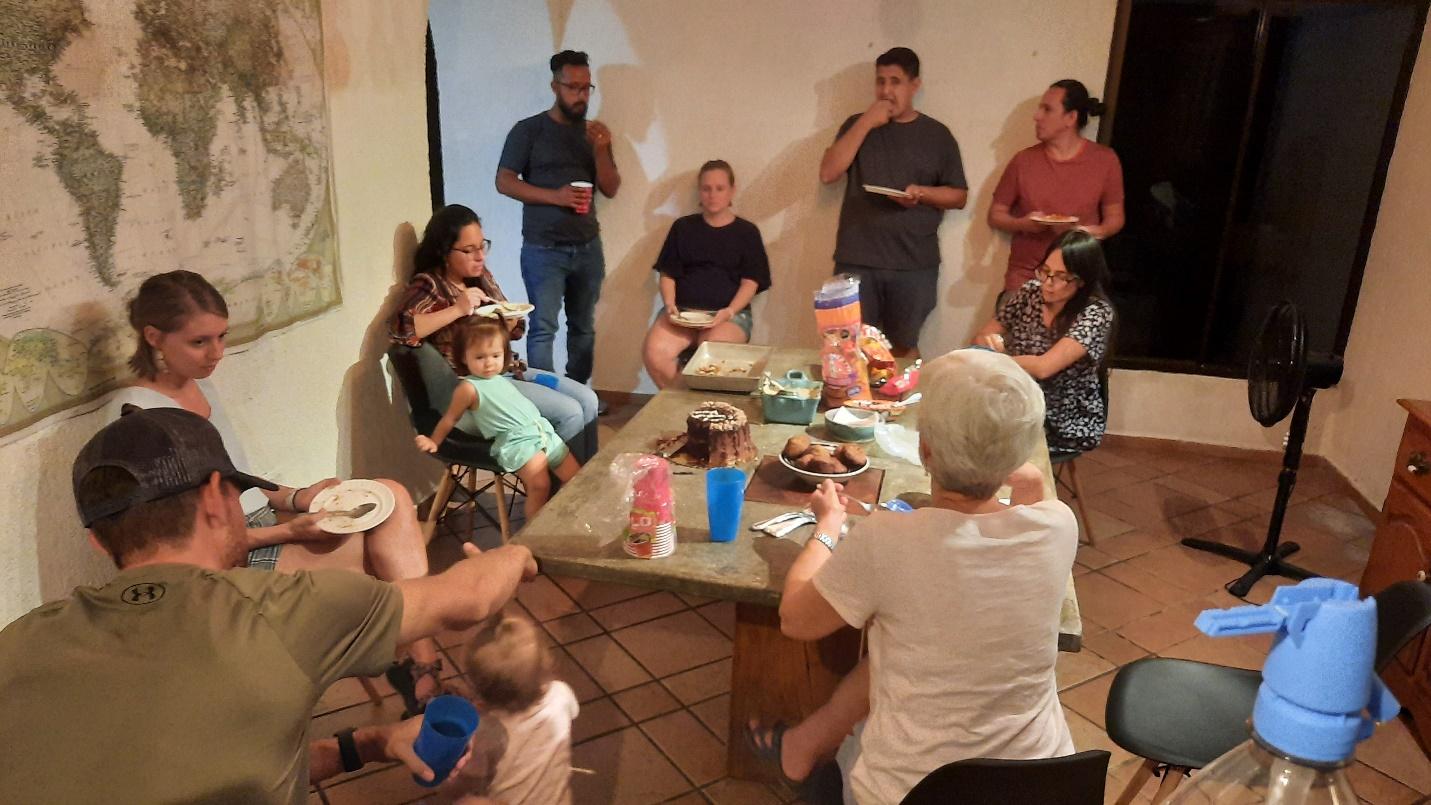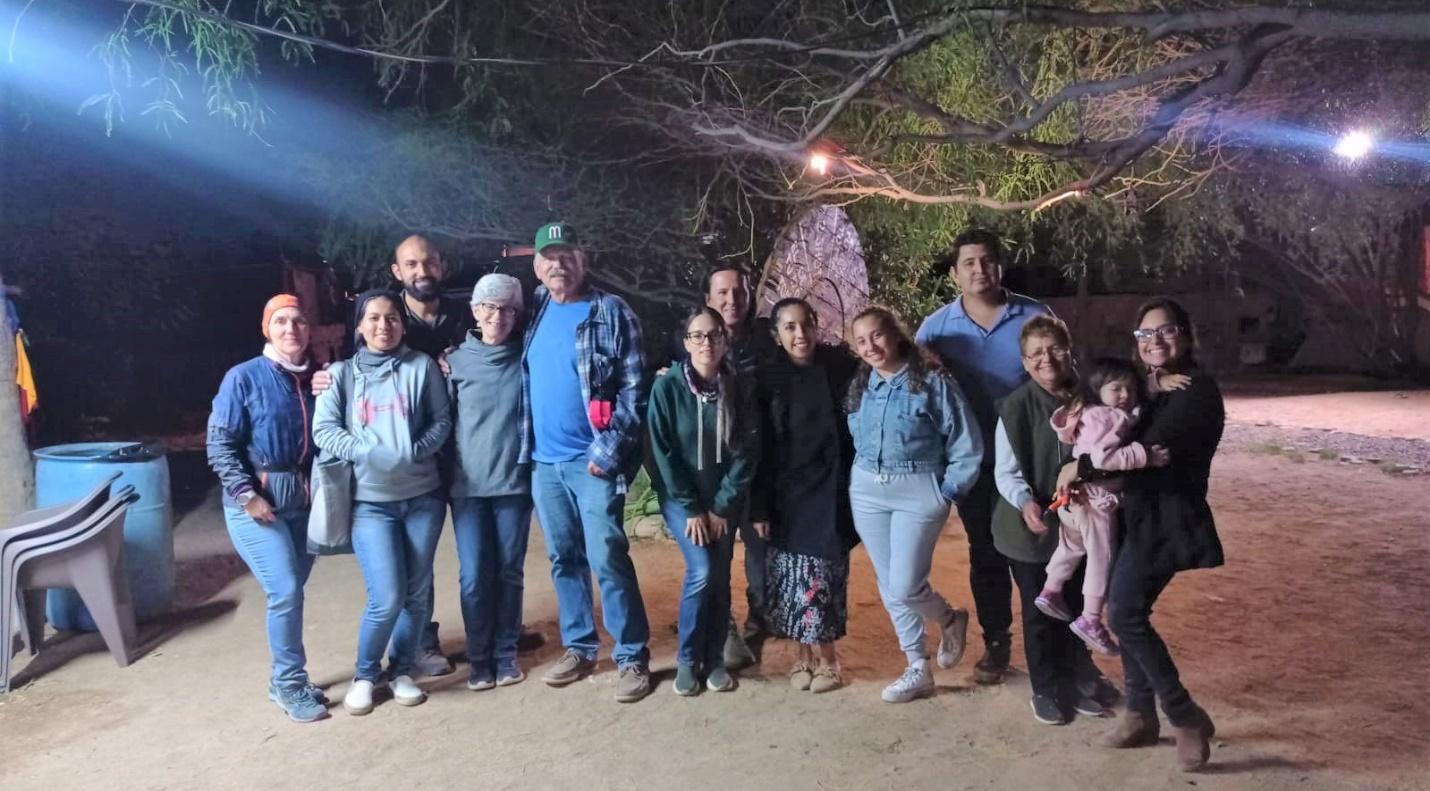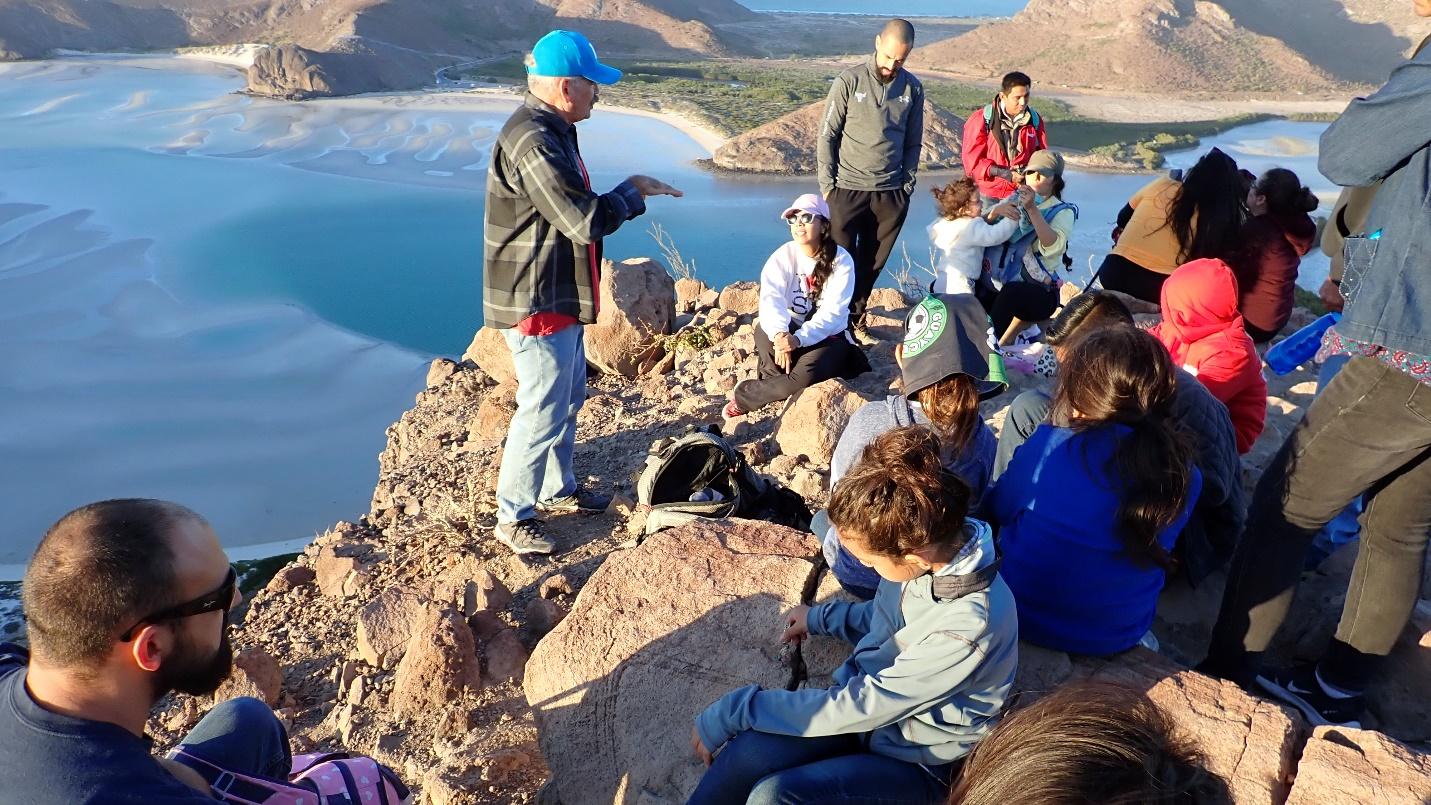“This is the first church I have ever been to where I did not feel anxious.” The middle-aged woman who spoke these words is a lifelong church attendee. She has lived on three continents. She has been to many different churches and participated in many types of church events. At long last, she now feels she has found “her church.”
The gathering she found calls itself “the Patio.” Some people might see the Patio as too simple to be a church. This group of Jesus followers meets outdoors on the tiled-over patio in the front yard of our house in La Paz, Baja California Sur, Mexico.
Every Sunday evening, we set up chairs and a table or two for snacks, and we plug in the party lights strung in the trees. Friends and neighbors show up at 6 PM, although this being La Paz, Mexico, 6 PM is a rather fluid concept. Muffler-less cars, ever-barking dogs, music shared by overly generous neighbors, car alarms, and crying children all contribute to the sounds of our evening assembly. I’m afraid the “be still and know that I am God” part of our worship will have to happen elsewhere.
There is absolutely nothing unique, special, or innovative about the Patio: nothing. We are simply an archaic throwback to a time long ago. We pray, sing worship songs, have a Bible exploration time, and share a snack. People are encouraged to live their lives serving others and to share their resources with people in need. The group is encouraged to read their Bibles frequently. We want to understand the teachings of Jesus that the apostles wrote about as if they had been written to our little group, kind of like what the original recipients would have understood the case to be.
Our desire is to experience the Kingdom every time the Patio gathers. The only thing missing is the physical presence of the king.

There is no desire for the Patio to become big; in fact, we want it to stay comfortably small, small enough for true and active relationships to develop. We want the Patio to remain small enough for people to share life together, not just participate in organized activities. Bigger is not better. We want the group to remain intimate enough to be able to discern each other’s spiritual gifts and to identify the 1 Timothy 3 character qualifications necessary for leadership.
Our hope is to see gatherings like the Patio springing up all over town like toadstools after rain but with no need for a central, controlling authority structure other than honest adherence to the Bible. Like the early church, we need the Word of God to keep us heading in the right direction and to rein us in when we start to go off course.
The Patio does not view itself as the goal or an end product worthy of cloning via franchises. We simply believe our understanding of the Body of Christ is one worth sharing. We are under no illusion that we have stumbled upon the perfect structure or set of practices for the entire church worldwide. We are simply one of many styles in which the Body of Christ manifests itself in the world today.
What makes the Patio a special place for our friend is that she is welcomed as a participant and not as a spectator. She likes how the “sermons” are sometimes simply a set of questions discussed in small groups and then tied together by the leader at the end. Since preaching is not listed in the Bible as a requirement for a church pastor, the Patio focuses on teaching, which is a requirement. Our teaching goals are understanding and application, not only accumulation and repetition.
The Patio really has no ongoing expenses. We did buy chairs, and we do have a projector (purchased long before the Patio idea was birthed), but other than that, there are no expenses, and at least there are no ongoing budget items. People do bring offerings of food which they share at the end of the service, but even that is not really an organized program, and people share whatever they can and want to share. It always works out, and there is always something to eat.
Last night a woman brought a big bucket of ice cream. If there is a known need, people bring an offering. Medical expenses, food baskets, missions projects, and youth activities are where the offerings go. We probably need to strengthen this area to make sure everyone has the opportunity to be made happy by being generous. Because the Patio is informal and has no constitution, no bank account, no properties, no formalized programs, no membership requirements, no rents, no salaries, no titled office holders, and no financial dealings, there is nothing for the government to regulate. In the eyes of an encroaching government, we are just a bunch of friends who get together every week.

The Patio practices shared leadership. The Patio seeks to avoid the risk of a domineering pastor. There is a team of people who take turns with the teaching times and share in decision-making. The Patio hopes that knowing Christ and experiencing and demonstrating Christ-focused unity is what people find when they join us, not a better youth program or better worship leaders or a spellbinding preacher who writes many books. The last thing we want is for someone to say, “I go to Pastor So-and-so’s church.”
In no way whatsoever is the Patio opposed to traditional churches. We are grateful beyond words for the thousands and thousands of churches which have gone before us and those that still exist today. I am personally indebted to the traditional Church because my missionary salary comes 100% from donations made by the Body of Christ, much of it from traditional churches. I am glad they exist and hope they always will. The Patio itself is no big deal. We do not think everyone needs to be like us. We are just one tiny part of a magnificent body called THE CHURCH, and we hope all parts of the church thrive.
The people of the Patio do not belong to the Patio. They belong to the Body of Christ. Because of this, the people of the Patio are repeatedly encouraged to visit other churches and participate in ministry with them. The Patio views itself as just one part of the Church, and as such, we hope that people love and serve other members of the Body of Christ.
Since the Patio is not dependent on money for its existence, there is no obligation to tithe to it, and offerings are free to be shared with other congregations if the people believe that is what King Jesus would want them to do. While we support traditional churches and rejoice that some of them will thrive well into the future, we sadly accept that many will not survive much longer, at least not in their current form. We grieve their inevitable demise but will continue to love and support them as long as possible.
The Body of Christ itself is alive and responsive. It will survive and thrive, but it will likely be in forms different than we know today. My guess is that the Body of Christ is returning to its roots.

Christian leaders often talk about sustainability. Though they might not be aware of it, they often think about programs and activities linked to and dependent on physical structures and managed programs. What needs to be sustained for eternity is the experience of belonging and the sense of unity with the King and his followers.
Although we would like the Patio to exist till Christ comes back, there is no need to perpetuate it since what matters is the Body, not the place or program, the idea, and not any structure. The Body of Christ does not need a permanent place or program to thrive. All that is needed is for people who understand this concept to meet together, and a Patio will exist. All that is needed is to understand what is already laid out for us in the Bible. More than anything, we hope the Patio exists as a way of thinking and a way of life, not as a place or program.
The focus of the Patio is on kinetic discipleship, not on a growth strategy or long-range goals. Any growth we may experience, we hope, will be of people drawn to the Kingdom by what they see in us and the way we live and not by an appealing program.

The strategy of the Patio is nothing more than a response-based ministry. We believe God is actively directing his Body, and we want to say “yes” to the opportunities the King provides. We prefer not to have elaborate, complex strategies and plans. Measurable data is not a priority. We seldom count how many people meet unless we figure out transportation needs for a church trip to the beach. We all want to be that tiny mustard seed doing what tiny mustard seeds do.
As much as we can, we will resist the law of unsustainable complexity, which states that “human organizations become increasingly complex to the point where sustaining them consumes more resources, time and energy than does fulfill the stated purpose of the organization.” This is a reason so many churches fail.
The Patio is a dynamic group of Jesus’ followers. Just as in any other dynamic group, there will be problems, confusion, disagreements, and indecision; but these are all evidence of life, not show-stoppers. An atheist university professor once told me in a class on evolution that the first symptom of death is the inability to change. How true. Adhering to and perpetuating never-changing empty practices is certain death. Change is often the result of a problem or a response to hardship. We hope the Patio is alive enough to adapt to changing conditions.

We know that the Patio will never be anything other than a never-ending, ever-changing work in progress. We are fully aware that we are not today what we hope to be tomorrow. Will the Patio exist far into the future? Maybe, maybe not, it would be nice, but it doesn’t need to. What needs to last until King Jesus returns is the understanding of what the Body of Christ is.
The Patio is an idea, not a thing. The Patio is an experience, not a place. The Patio is who we are, not where we go. It is not a set of organized needing-to-be-perpetuated activities to check off on a list. Our strongest desire is for the Patio to be a Kingdom outpost, a band of Jesus followers who revel in joy as they experience Jesus and his Kingdom today.
written by Steve Dresselhaus – Spring 2023
Originally published at: https://macrochristian.com/2023/04/30/the-patio-might-this-be-the-future-of-the-church/
Used with permission.
